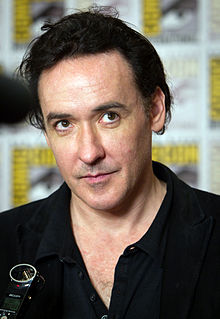You and I have talked about this in the past, John, that the material released by WikiLeaks ticked off the US government, primarily because it showed that the government had been routinely lying to the American people. That produced tremendous anger from government officials who are not used to be exposed in this way, including members of Congress. These are people who tightly control what the public knows and what information is allowed out of the government.
Frankly, most governments are used to lying to each other - to a degree that most people would find shocking. Part of diplomacy is the art of strategic lying. These cables show the level of deceit shown by government not only to other governments but to their own citizens, including our own. And so it was a tremendously embarrassing disclosure.
Some of these disclosures were quite startling and far more important than the media suggestion in the coverage. For example, we've talked about the cable showing the Obama Administration threatening Spain if Spain carried out its right under treaty to investigate the American torture program, in light of Obama's refusal to do so.
John Cusack: Yeah, it doesn't seem like this guy is being hunted around the world because he embarrassed some diplomats.
Jonathan Turley: Right, it is more than that.
John Cusack: I would love to discuss what these underlying legal principles are. Do you think he feels he's doing something that should be done by journalists and publishers -- do you think he's filling a gap in journalism, or is this a new sort of journalism? Perhaps he doesn't care about those distinctions, but should we?
Jonathan Turley: Well, the response to Assange is remarkable -- it was something of a paradigm shift. The media's used to insular disclosures that are controlled and focused on subjects like the secret prisons in Europe, or the torture program. What Assange did was a massive release of material that showed the breathtaking dishonesty by the US government and governments around the world . . . it showed how much of our domestic and international politics are just a type of kabuki, that--
John Cusack: In that way, it's adequately analogous to the Pentagon Papers. In the same way - say Eric Holder signing statements saying you can kill American citizens is the same kind of bullshit legal patina akin to John Yoo's torture document. What are the important difference or parallels, between the Ellsberg releases of the Pentagon Papers and WikiLeaks' release of the exposure of war crimes and state lies?
Jonathan Turley: I think you make the right analogy. In one sense, the Pentagon Papers were so powerful because they were focused on the issue of deception with regard to the Vietnam War. Assange is almost hurt by the fact that his disclosures were 100 times broader than the Pentagon Papers.
Ironically, if he had simply taken parts of those disclosures and released them in isolation, he might have had a greater level of support. Instead, he released this comprehensive record of deceit by the US government and other governments. And frankly, I think the mainstream media had difficulty in covering it and describing it and processing it.
The result is that this guy is isolated, both in a legal and physical sense. He's being basically held captive in this embassy, unless he's willing to leave and be subject to arrest. He has good reason to suspect that the United States government is planning to deport him as soon as any government can get -- any friendly government -- can get their hands on him.
John Cusack: Yeah -- I have no idea what the truth is in the matter. But I know that you haven't seen too many governments taking such active interest and getting so actively involved in Swedish rape cases.
Jonathan Turley: Well, there's a lot of skepticism with regard to the timing. The fact is the United States did need some government to grab Assange on the basis of some criminal allegation. Yet, we do not know fully the underlying facts.
Assange may indeed be a highly imperfect individual - even a rapist if these allegations were ever proven. As I've mentioned before, I tell my students all the time that our causes are often better than our clients. It's just a reality of pro bono or public interest work. It is not uncommon to have people who raise important public interest issues, but may have committed great wrongs.
Frankly, I don't know what the truth of the matter is. I know that Assange has offered to meet with investigators in the embassy, and that's been refused. I'm a little uncertain of why it has been refused.
But in terms of the importance of WikiLeaks, I don't think anyone can really question that there is considerable importance to those disclosures.
(Note: You can view every article as one long page if you sign up as an Advocate Member, or higher).





